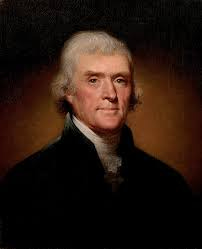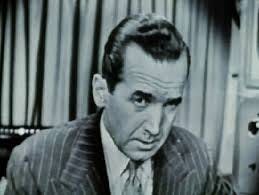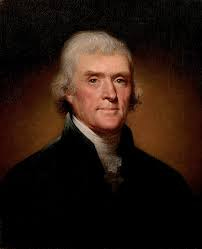Welcome to Second Rough Draft, a newsletter about journalism in our time, how it (especially its business) is evolving, and the challenges it faces.
Is responsible journalism inherently progressive?
To read some critiques these days, from both left and right, you might think so. Some on the left get ruffled whenever the press poses uncomfortable questions about their leaders, while others on the right, in an assault on truth itself, seem to enjoy condemning the press as a whole.
Even if those posing these questions hail mostly from the political extremes, the issue is worth grappling with seriously. Is there something about quality journalism that yields a tilt in terms of today’s politics? I think the answer is an emphatic “no,” but with an important caveat. Here’s why:
This newsletter is called Second Rough Draft because I believe there is an inextricable link between journalism and history, and between the premises of good journalism and the premises of our democracy. Too often right now, I think we are losing track of both.
Journalism’s job
It is a critical job of journalism to present citizens with the information they need to exercise their democratic rights and responsibilities, including the responsibility to vote. It is a premise of journalism, and of a democratic society, that if all citizens are informed and responsible, they will ultimately—not in every instance, but ultimately—make decisions that advance societal interests.
Put simply and directly, journalism is pro-democracy and democracy is pro-journalism.1 History in this country and elsewhere is full of demonstrations of how this works, and doesn’t. The rise of McCarthyism, for instance, was a classic failure of journalism, and its fall then a classic example of journalistic success. So it was with decades’ studied ignorance (or worse) in white communities of the costs exacted by Jim Crow, and then with the heroic journalism in the South during the Civil Rights Movement. Ditto Watergate in the period before the 1972 election, and then in 1973-74.
It is not an accident that autocrats suppress press freedom whenever they can, nor that democratic revolutionaries, including those who founded our own country, insist on it.
So much for theory. What about in practice? Here, of course, things get much more complicated.
The paradox of America’s founding
History is worth studying precisely because it is not straightforward. The Framers sought to guarantee free speech, the right to protest and press freedom. The most eloquent among them declared that “All men are created equal,” even as he enslaved people. In the same decade as the Constitution’s first amendment, the original text guaranteed 20 more years of the slave trade and implicitly enshrined the notion that enslaved persons should be forbidden to vote, while explicitly counting them for purposes of apportioning House seats and electoral votes as a way of enhancing the political power of those who enslaved them— but even then only as fractional human beings. From that day to this, race has been the transcendent issue in our national life.
The result was the Civil War, a reframing of our democracy in three amendments to our charter, and then the practical collapse of that reframing in the crushing of Reconstruction. After more than 80 years, a movement arose to reclaim the reframing, burned brightly for 15 years more than half a century ago, and now seems again on the march.
Journalism plays a crucial role in all of this, both when it calls the country to confront its past and present, and when it does not. But we should not confuse this work with the breadth of progressivism.
What journalism should not do— and what it should
Journalism collectively does not—must not-- inherently take a side in how high our national debt should be, or how taxes should be structured, or how our educational and criminal justice systems should be organized and conducted, or when and on what terms we should wage war or peace, or how much legal immigration should be permitted, or when we should levy tariffs and when not, or how our social safety net should be woven.
These are all essential questions of democratic governance, and people should and will have passionate views concerning them. But democracy itself requires that we all acknowledge that they are questions on which responsible citizens can and will differ.
Journalism’s role is to supply the facts and analysis on the basis of which these citizens can make, and sometimes change, their judgments. That does not mean that any given work of journalism need be in any sense “neutral”— the most powerful and evocative journalism surely is not. But it does mean that reported journalism must follow the facts where they lead, not simply array them to satisfy a preordained conclusion.
Here comes the caveat
I began by saying that journalism should not tilt in terms of our politics, but with a caveat. By now I hope the caveat is clear: To the extent that our politics, or the politics anywhere, includes a truly anti-democratic element, journalism necessarily takes a side.
Again, just as democracy is pro-journalism, so journalism is necessarily pro-democracy.
We cannot shrink from this responsibility— nor should we leap to see its implications everywhere. As our politics has, especially in recent years, become more coarse, many are tempted to see democracy itself at stake in what are much less apocalyptic debates. But when, as for instance with the insurrection of January 6 or attempts to abridge others’ right to vote, democracy itself is truly threatened, there can be no neutrality, and no hesitation.
Jefferson’s reminder
In his first inaugural address, Thomas Jefferson insisted that “we are all republicans, we are all federalists.” Sometimes in citing this, the words are capitalized in recognition that these were the names of the two political parties of the time, Jefferson and James Madison’s Republicans and John Adams and Alexander Hamilton’s Federalists. But Jefferson did not capitalize the words, and doing so misses his intent. He was an idealist (even as he failed to live his ideals), but not naïve. Rather, Jefferson’s point was that all patriotic Americans must and do accept that ours is a republican government in the sense of being centered on elected representatives, and in a federal system. That it remains 220 years later, and much more inclusively than in Jefferson’s day.
More broadly, Jefferson’s vision must also be ours. In today’s terms, we are all democrats, we are all republicans. That should be true of our journalists, and preserving and perfecting our democratic republic should be among the objects of our most important journalism.





Brilliant, Dick - thank you.